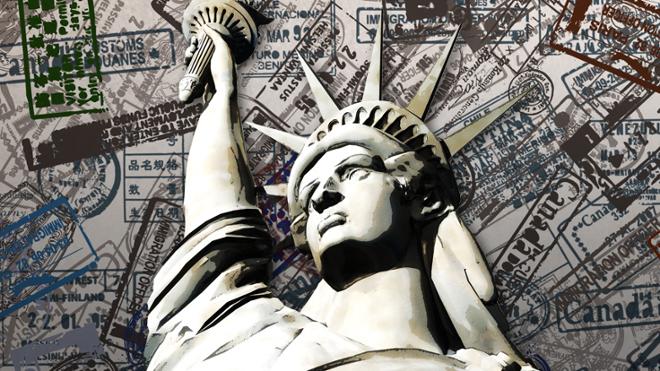A common cause
On a Wednesday night in Nov-ember, a Richmond Law lecture hall is packed. Students and faculty are among the attendees, but so are attorneys and local residents with no legal background. They’re here to learn more about volunteering for the Capital Area Immigrants’ Rights (CAIR) Coalition’s Detained Adult Program.
The CAIR Coalition, based in Washington, D.C., wants people to join them on all-day visits to U.S. Immigration Customs and Enforcement (ICE) detention centers in Bowling Green and Farmville, Virginia — both about an hour’s drive from Richmond — to help with translation, the intake of new detainees, follow-up consultations, and orientations that include a “know your rights” workshop. In describing the details of the visits and realities for the immigrants detained — for instance, how detainees must retell their traumatic experiences within constraining time limitations — the pair of CAIR Coalition staffers on hand alternate between stunning the audience into silence and shocking its collective conscience.
The session is just one opportunity available through the Immigration Assistance Project, one of the pro bono programs under the umbrella of Richmond Law’s Harry L. Carrico Center for Pro Bono & Public Service. Tara Casey, the Carrico Center’s director, says that while she manages the project, she isn’t an expert in this area of practice. She acts as a facilitator, connecting engaged students with legal professionals for whom this is an area of both expertise and compassion.
“The area of immigration law is fascinating,” Casey said. “I think when students take immigration law, and they learn a little bit more about it, then it does spark this interest of, ‘Wait a minute, this is much more complicated, much more fluid, and there are pieces of it that are not fair. And I want to dive into this further.’”
Students in Richmond Law’s pro bono programs must be supervised by licensed attorneys, so the project works with local law firms and groups such as the CAIR Coalition, the Hispanic Chamber of Commerce, the Legal Aid Justice Center’s Immigrant Advocacy Program, and the Virginia Poverty Law Center. They also can explore the field through Richmond Law’s Children’s Defense Clinic and by taking courses such as Immigration Law, Crimmigration, and the Immigration Rights Practicum.
For many associated with Richmond Law — students, alumni, faculty, and staff — legal advocacy on behalf of the immigrant community in the Richmond area takes so many forms that it’s created a local ecosystem among the alumni practitioners who specialize in the field or do pro bono work, current students who volunteer their time to learn more about the practice, and the law school faculty who mentor the students. Here, they share their experiences.
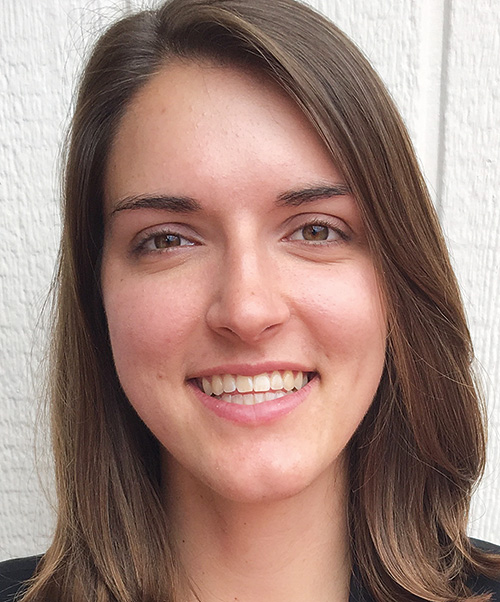 Emily Lopynski, L’20
Emily Lopynski, L’20
Lopynski, a 2L bilingual in English and Spanish, volunteers with a variety of local immigration law-related causes, including visiting the Farmville ICE Detention Center with the CAIR Coalition.
[Farmville is] a very intense environment. On top of that, the people that we’re meeting with are going through some pretty awful things. During intake [of the detainees], people will tell me the different stressors around them. We have to focus on the intake, but sometimes people will start telling you about their mental-health crises or what’s going on with them and how terrible it is to be detained there.
I’m in a Crimmigration class, which is a new class that Professor [Erin] Collins teaches. We look at the intersections between the criminal-justice system and the immigration system and how criminal charges affect people going through immigration proceedings.
This class has definitely been helpful, and it’s a tool that I know I’ll have when I’m looking for summer jobs. The Crimmigration class helped me realize that there’s a position in some public defender offices, where there’s a person who’s specifically tasked with looking at people’s immigration status.
Because of that, I’ve been reaching out to local practitioners to see what kind of possibilities there are in that specific field — the immigration sector of criminal justice. That class helped me to see more possibilities of what kind of jobs I can have once I get out if I want to continue in the immigration field.
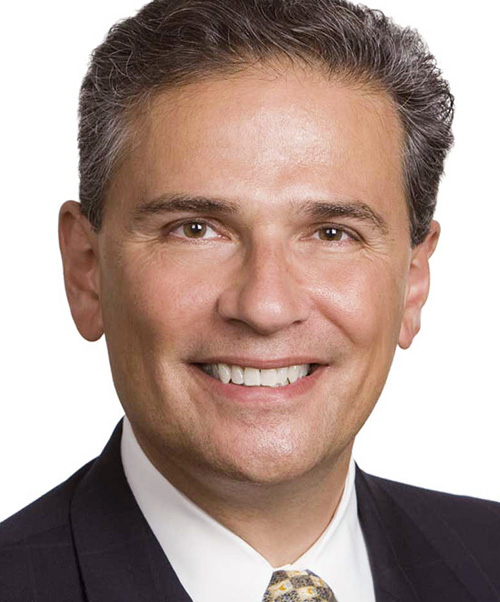 Bill Benos, L’88,
Bill Benos, L’88,
Adjunct professor
A native of Canada and the founder of Williams Mullen’s immigration law practice, Benos has mentored many of the region’s immigration lawyers through teaching Richmond Law’s Immigration Law course for more than 20 years.
It’s been good to see University of Richmond students take the step to actually become immigration lawyers. That’s important because immigration is a very specialized field. So there’s a certain amount of immigration law work in Richmond and Central Virginia. But for many, the success of their practice also depends on growing it beyond Virginia because it’s a federal practice. I’ve been really proud to see that there’s been a proliferation of immigration law practice.
We have a growing population that is local that needs immigration services. We have a very large and growing community that I’ve seen grow over the last 20 years from Latin America. So it’s wonderful to have a growing immigration bar to help that community because immigration law isn’t just about helping businesses. It’s about helping families and helping individuals, too.
I think if you’d ask anybody in the practice today, they would all tell you, “I practice immigration law because I want to help people.” Now it’s become a political football. Unfortunately, sometimes when something gets politicized like that, you end up having an unnecessarily complicated process, an unnecessarily delayed process.
Being an immigrant myself, I can tell you the emotions that people feel when they’re going through the process; there’s a lot of risk, uncertainty, delay, complexity. But once they get through it, there’s a tremendous amount of relief and satisfaction, and sort of happiness, ultimately.
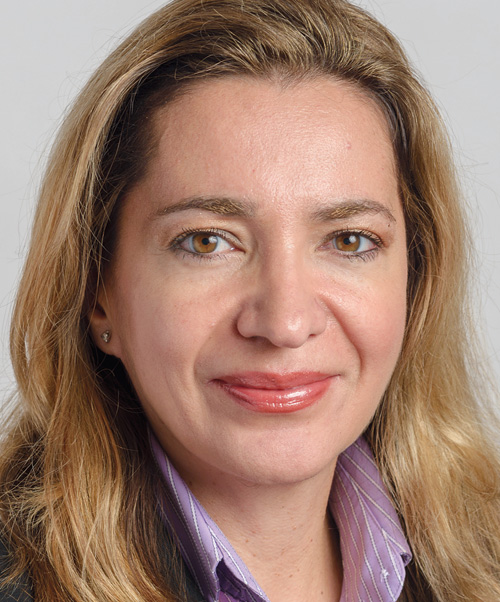 Genoveva Border,
Genoveva Border,
Adjunct professor
Border, who has practiced law in the U.K. and her native Ecuador, is the director of Spanish services at Marks & Harrison in Richmond and teaches Spanish Legal Skills at Richmond Law.
We want to be able to communicate, not only in their own language, but an emphasis of the class is understanding the cultural differences with a Hispanic population. So it could be that your Hispanic client speaks English fluently, but I think it’s important for an attorney to be able to understand where they’re coming from.
When we go to the [Hispanic Chamber of Com-merce] pro bono legal clinic, the students get a chance to practice the skills that they have learned in the classroom. The role of the student is to translate if they feel comfortable doing that, to shadow the attorney, and to see a real case. It’s a real client with a real attorney, talking about the particular issues. That’s a wonderful opportunity for the students — the human aspect as well as the legal aspect.
The students can do a bit of networking with the attorneys that are there, too. In the future, they may be mentors, or they may even find jobs in those law firms. One of my students — Ben Williams, L’14 — took the class, and now he’s a partner at an immigration firm, Tingen & Williams.
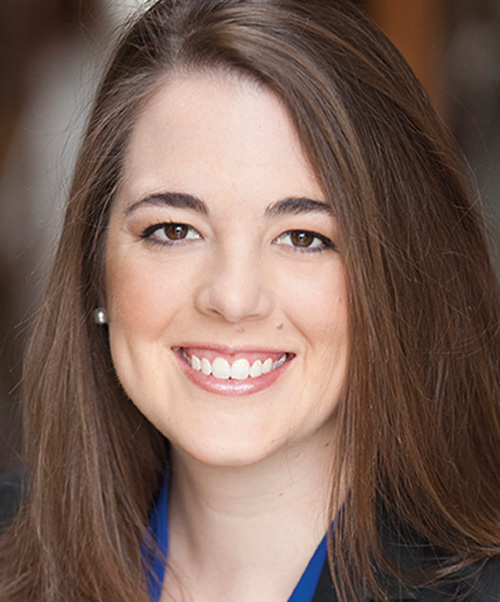 Morgan Brown, L’13
Morgan Brown, L’13
Brown is the pro bono fellow for Hunton Andrews Kurth.
Luckily, Hunton is really supportive of it, and they give hours for doing this pro bono-type work. My position is a little different because I’m doing only pro bono work, but as long as I’m getting in the Hunton pro bono hours, I’m able to do whatever I want as long as it doesn’t conflict with their clients.
I help staff the Virginia Hispanic Chamber of Commerce legal clinic through Hunton twice a year and recruit attorneys from Hunton to go to the clinic. I assist with intakes and I speak Spanish, so anyone who needs help translating, I’ll jump in. When we get back to the firm, I find people to actually take the cases. As they’re going through all of this, if there are transactional attorneys who don’t want to go to court, I might take on the court piece for them or help translate phone calls, just keep tabs on everything and make sure it’s all moving forward.
I’m really grateful to the law school because I think they helped me take my natural abilities and passions and my vision for the future, and they gave me the skills to [use them]. I applied to law school to help people get equal access to justice who wouldn’t necessarily get it otherwise, and through my experiences there, I’ve been able to do that.
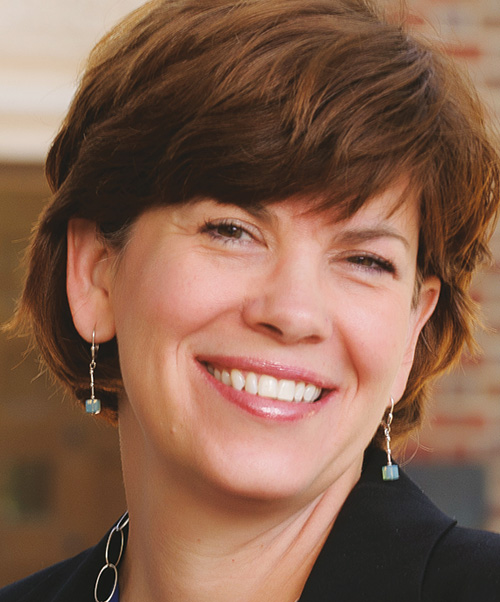 Julie McConnell, L’99,
Julie McConnell, L’99,
Clinical law professor
and director, Children’s Defense Clinic
McConnell guides students in filing petitions that assert it’s in the best interests of unaccompanied minors to remain in the United States, an initial step in preventing the children from being deported.
I think [the process of filing petitions] was really transformative for the students because they got to, first of all, practice their legal skills and advocacy, learn how to do custody petitions, and learn how to convince a judge that it was appropriate and right to consider the best interest factors in determining who should have custody and where they should have custody.
They had to subpoena records in Central America, reach out to family members that still live there, and find out whether they objected to this process because we had to let the court know. We had to get them to sign an affidavit, get it certified by a lawyer in El Salvador, and then get it sent here. We had to get birth certificates and other records and have them translated. Because the court is not appointing us to represent these folks, the court’s not going to give us an interpreter until the actual trial. So all of the work in advance of the trial — investigating the case, meeting with the client, gathering documents — we would provide translation, and students would volunteer to do that.
When we succeed in getting a custody order signed, we know that we have opened a door for them that would have been slammed in their face otherwise. They would never have been able to make this argument in immigration court if we hadn’t gotten the predicate findings in juvenile court. The students feel like they are actually lawyering because they are getting something accomplished that these families couldn’t do on their own.
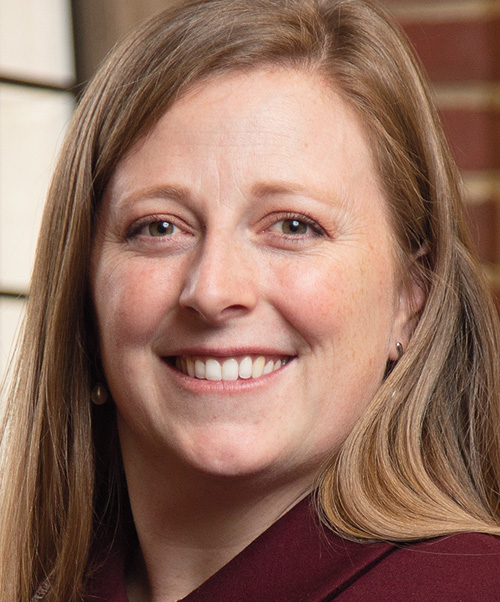 Jesse Jurgens, L’19
Jesse Jurgens, L’19
Jurgens, a 3L bilingual in English and Spanish, volunteered at the Children’s Defense Clinic as a translator.
Since there were other students handling the cases and I was just translating, I got to learn a lot from them as I got more familiar with it. And then during my time in the clinic, I was able to talk with the attorneys at the Legal Aid Justice Center that referred us the cases and got more involved with details like the serving process in Guatemala and the details of how to reach out and do some of the international law, which was really valuable, too.
It’s heavy because you’re talking to people about some of the worst experiences of their lives. The things that people experience in order to uproot their lives and their families and come here are a lot of violence, a lot of persecution. Many of these kids were separated from their parents, and I think it makes it especially hard for them to come and adapt and to feel stable here.
It’s really nice to see when they settle into a strong community, into a strong family. They start really learning English and just making friends. We get to talk about the negative things that have happened to them but also [about] how their lives have changed since they’ve been here. And that’s really rewarding.
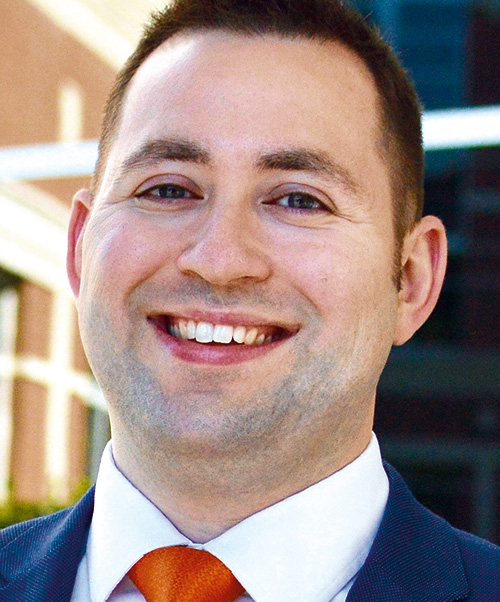 Jacob Tingen, L’12,
Jacob Tingen, L’12,
Adjunct professor
An immigration attorney and founding partner of Richmond firm Tingen & Williams, Tingen also teaches Richmond Law’s Immigration Rights Practicum and is the branch president, or lay minister, of his church’s Spanish-speaking congregation.
Beforehand, I was going to do big corporate law. I’m like the poster child for what you’re supposed to go through in law school. Your eyes are supposed to be open to the world’s injustices as a law student. ... Now I’ve realized attorneys have this opportunity to fix things that are wrong.
I meet with people in this community during the week as an attorney. I know what this community is going through on a personal level, and I know what they’re going through on a spiritual level. I know their challenges.
I think there’s a big role for mental health services. A lot of these people come with trauma. One of the biggest issues I have with some of my clients is they can’t testify very well in court — not because they didn’t pass through bad things and don’t merit asylum. They can’t testify because they lack the mental and emotional tools to do so because they don’t have access to appropriate mental health care.
My first two years, I was a disaster because I was doing a lot of it pro bono. I didn’t know how to charge for my services, and it was a rough couple of years. But it was worth it to do 150 pro bono cases to start out. Just imagine how much stress is immediately removed from your life when you realize, “I have a right to exist here.”
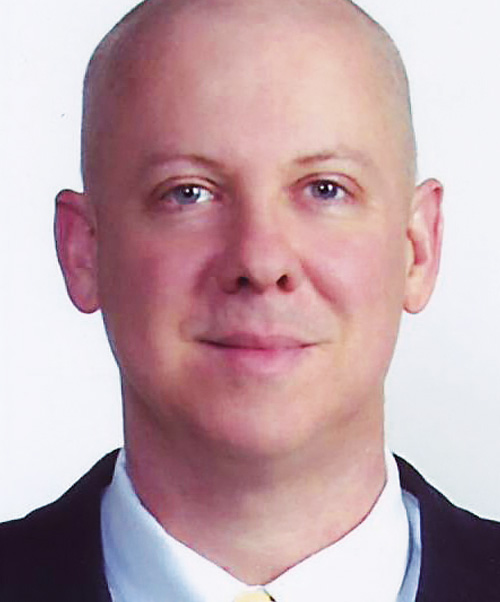 Chuck Petran, L’18
Chuck Petran, L’18
Petran is a postgraduate fellow at the Office of the Federal Public Defender for the Eastern District of Virginia. As a 2L, he won an individual hearing for asylum at immigration court in Arlington, Virginia, under Tingen’s supervision.
I met with a mother and a daughter from El Salvador in the fall of 2016. The individual hearing wasn’t until March of 2018. They were both seeking asylum. The daughter was 14 at the time and being harassed by [the gang] MS-13. Basically: ‘You’re going to give us your daughter, or you’re dead.’
That was my first time taking a deposition, and as time went on, I filed my motion, as a law student, to appear. I filed a motion to allow for expert testimony, where we had a guy from American University who is an expert on Latin America, specifically El Salvador. Combined with everything that I had read — scholarly journals, Time, The Washington Post, academic studies — everything corroborated what she had said. They’re certainly a class of individuals that should be given asylum status, just as any political party or religious group.
Richmond Law is ideally situated to give students, I think, a real boots-on-the-ground experience, and that’s what I was looking for. I just wanted to get out there and meet the clients and meet the attorneys and get my hands dirty. I wanted to see how it functions, what form, what paperwork needs to go where, what do I give to the clerk, does this need to be copied? There are so many different pro bono opportunities — from writing wills, to family law, to housing — and for me it was immigration.
Aggrey Sam is the editor of Richmond Law magazine.
